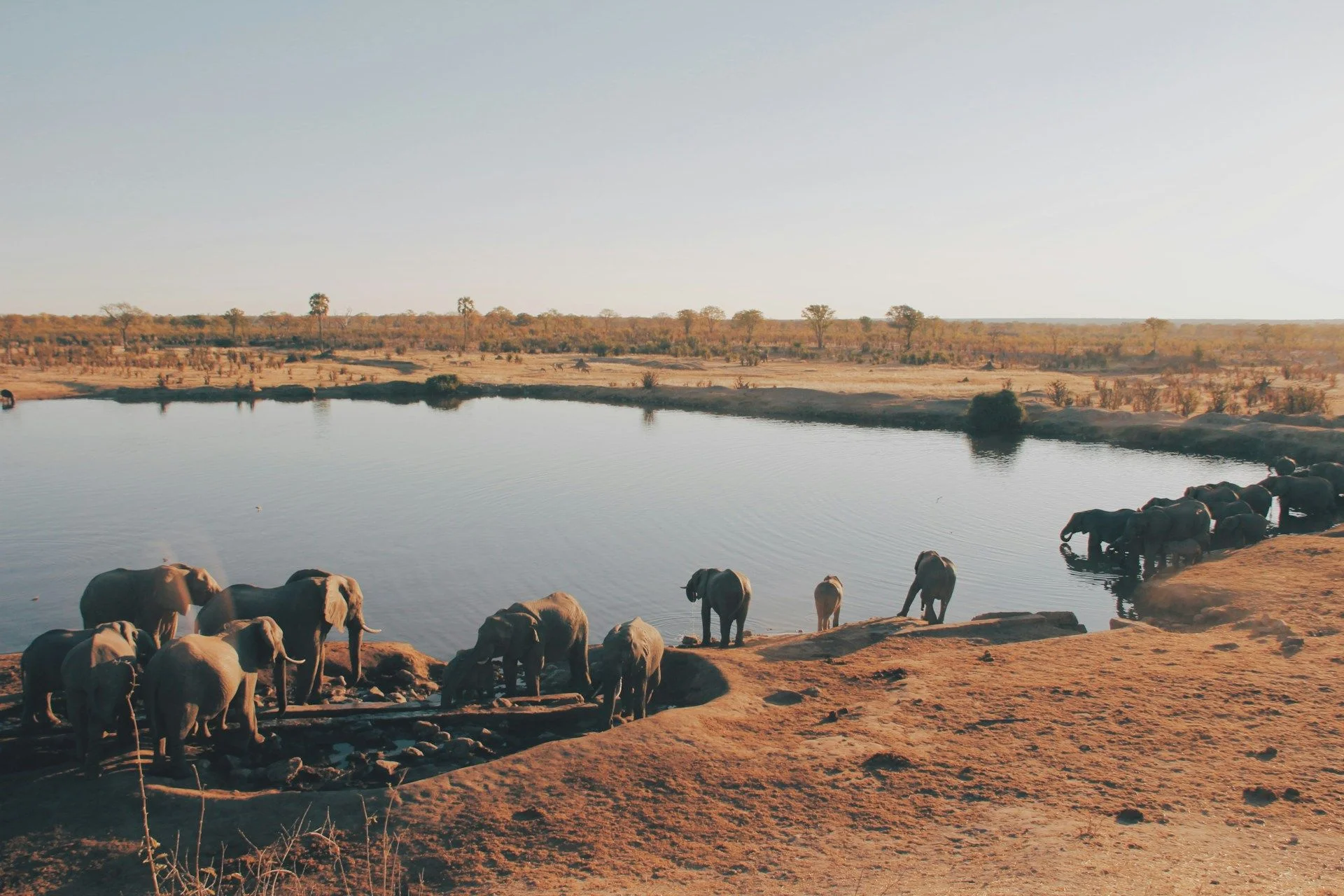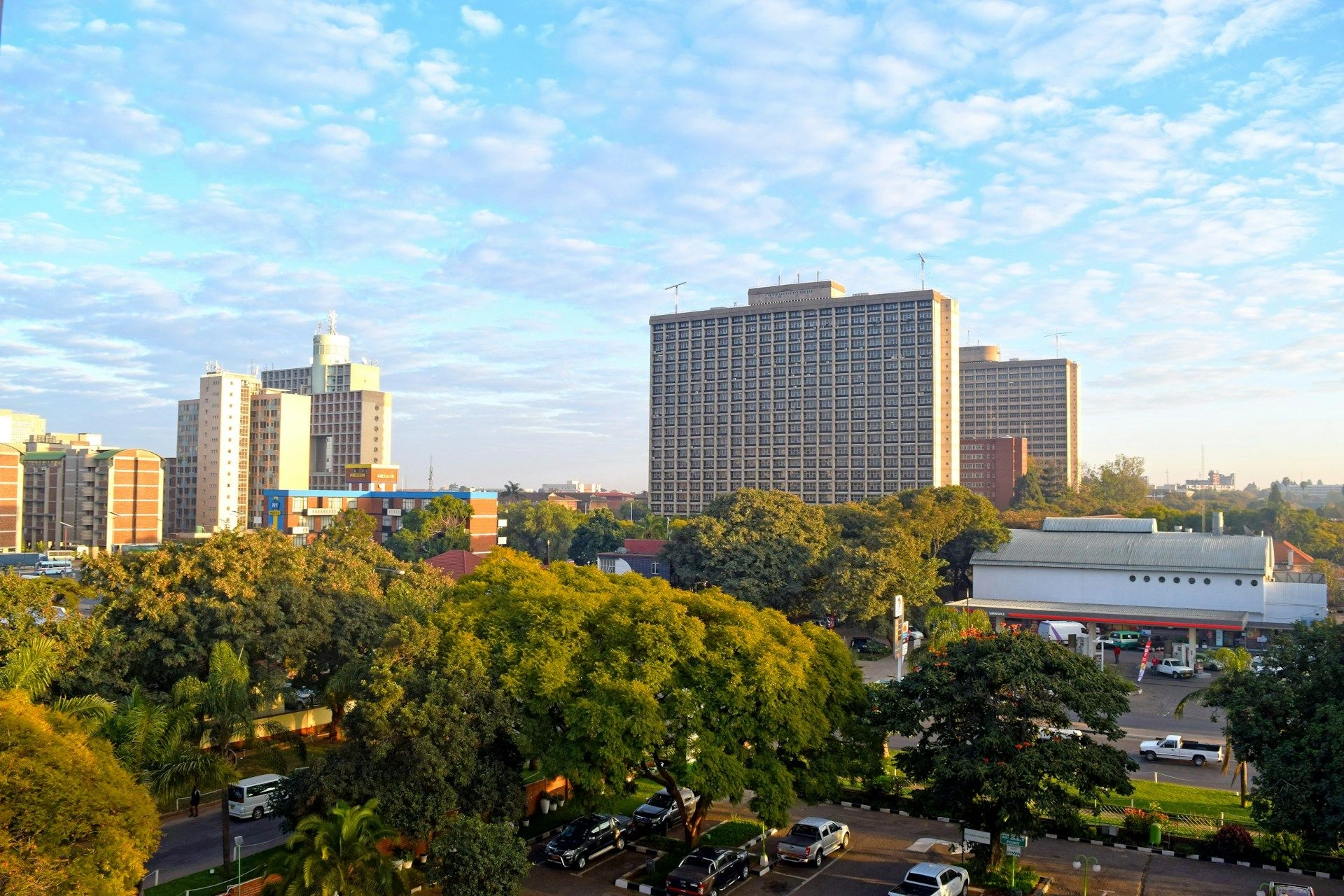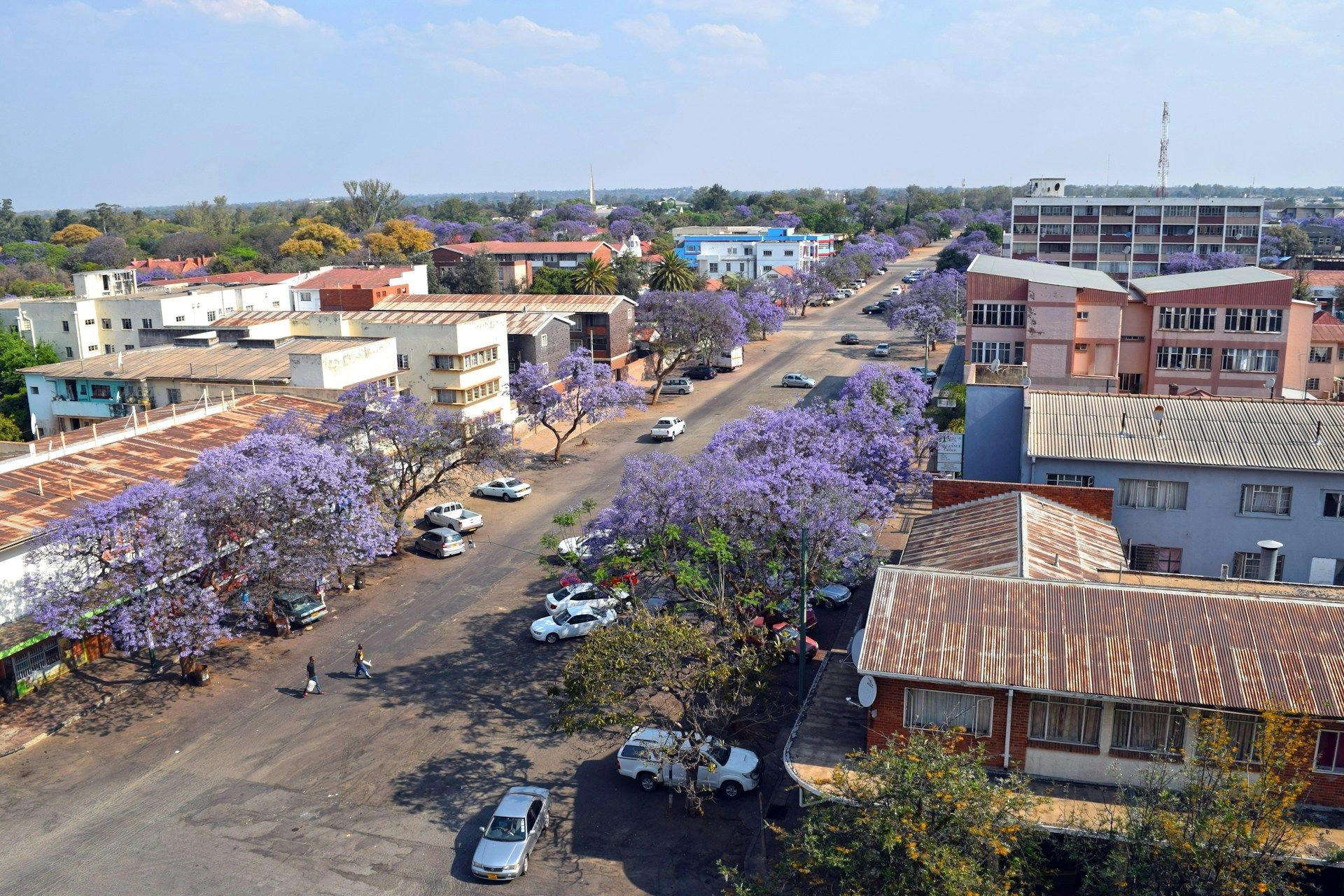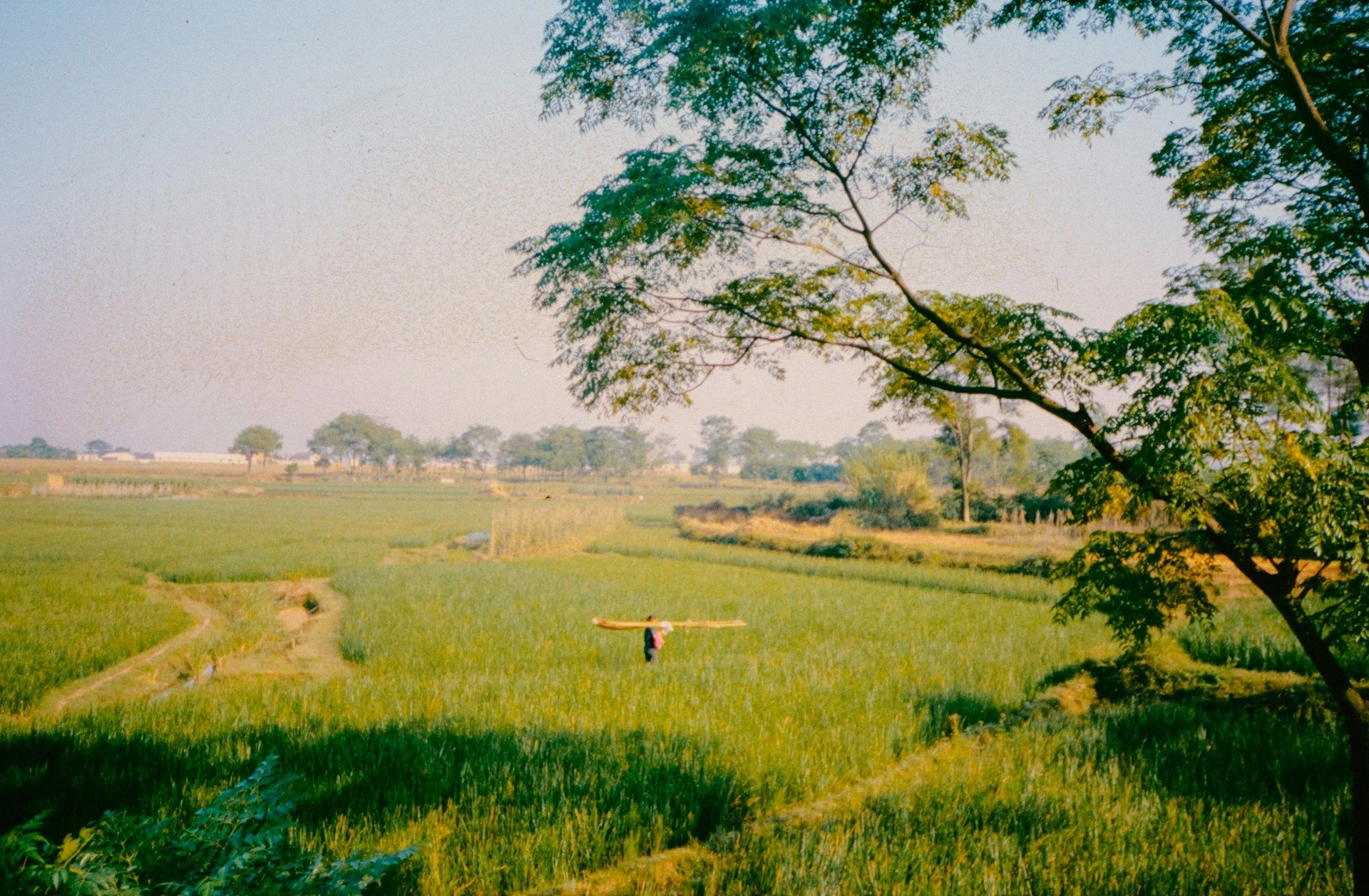Bienes raíces secundarios en ZimbabueAvenidas de piedra con hogaresluz solar y tranquilidad

Ciudades y regiones populares en Zimbabue
Populares
Mejores ofertas
en Zimbabue
Beneficios de invertir en
bienes raíces en Zimbabue

Guía para inversores inmobiliarios en Zimbabue
lee aquí
Harare y Bulawayo siguen expandiéndose, creando oportunidades para el desarrollo residencial y la adquisición de terrenos de nivel de entrada.
Los zimbabuenses que viven en el extranjero invierten en casas y terrenos, impulsando un desarrollo gradual y la propiedad de bienes raíces a largo plazo.
El crecimiento urbano impulsa la demanda de nuevas viviendas
Grandes terrenos permanecen accesibles para quienes buscan inversiones a largo plazo en formatos vinculados a la naturaleza — desde proyectos ecológicos hasta la adquisición de terrenos.
Flujo constante de capital privado del extranjero
Lee más
Amplia disponibilidad de terrenos no desarrollados y rurales
Los zimbabuenses que viven en el extranjero invierten en casas y terrenos, impulsando un desarrollo gradual y la propiedad de bienes raíces a largo plazo.
El crecimiento urbano impulsa la demanda de nuevas viviendas
Grandes terrenos permanecen accesibles para quienes buscan inversiones a largo plazo en formatos vinculados a la naturaleza — desde proyectos ecológicos hasta la adquisición de terrenos.
Flujo constante de capital privado del extranjero
Lee más
Amplia disponibilidad de terrenos no desarrollados y rurales

Artículos útiles
y recomendaciones de expertos
Exploring the Secondary Real Estate Market in Zimbabwe
Why secondary properties attract buyers
Zimbabwe’s secondary real estate market holds a distinctive position within the country’s broader property sector. While new developments often receive significant attention, the secondary market offers diverse opportunities that cater to a wide range of buyers, from first-time homeowners to seasoned investors. Properties that have already been built, occupied, and maintained provide unique advantages, such as established locations, immediate availability, and often a lower cost per square meter compared to newly constructed units.
In many Zimbabwean cities and towns, secondary real estate is an appealing option because it combines tangible value with practical benefits. Buyers can move in immediately, avoid construction delays, and choose from a variety of architectural styles that reflect the country’s evolving history. For investors, the ability to assess a property’s actual performance over time—through rental history, maintenance records, and neighborhood development—reduces the uncertainty associated with off-plan purchases.
Established neighbourhoods
One of the defining features of secondary real estate in Zimbabwe is its location within established neighborhoods. These communities typically have a proven record of livability, with reliable access to utilities, schools, healthcare facilities, and retail services. In urban centers such as Harare and Bulawayo, well-developed suburbs provide a balance of convenience and lifestyle appeal. Residents benefit from mature tree-lined streets, active neighborhood associations, and proximity to employment hubs.
Established neighborhoods also offer stability in terms of property values. Because these areas have already reached a certain level of development, fluctuations in market value are often less pronounced than in emerging zones. For families, this means greater confidence in long-term residence plans; for investors, it means a steadier return on investment over time.
Who buys secondary real estate
The buyer profile for secondary real estate in Zimbabwe is diverse. Local professionals often look for move-in-ready homes in urban or suburban areas to minimize the disruption of relocation. Families seek properties with larger plots, mature gardens, and proximity to schools—features often found in older homes. Retirees may prefer smaller, manageable homes in established communities where they can enjoy a slower pace of life.
International buyers and Zimbabweans living abroad (the diaspora) also play a role in the market. Many in the diaspora purchase secondary properties as holiday homes, rental investments, or as part of a long-term plan to return to Zimbabwe. For these buyers, the ability to inspect and verify an existing property before purchase is a major advantage.
Market types and price ranges
The secondary property market in Zimbabwe is far from uniform. In major cities, high-demand suburbs offer spacious houses with landscaped gardens, secure parking, and in some cases, swimming pools. Prices in these areas are higher, reflecting location desirability, property size, and quality of construction. In mid-tier urban areas, buyers can find solid, well-maintained homes at more affordable price points, often with potential for renovation and value uplift.
In smaller towns and rural areas, the secondary market includes large plots of land with existing homes, smallholdings, and agricultural estates. These properties are popular among buyers interested in mixed residential and farming use. Pricing here is generally more accessible, though infrastructure and service availability vary widely depending on location.
For investors, understanding the local market dynamics is critical. Properties in tourist hubs such as Victoria Falls may command higher rental rates due to short-term accommodation demand, while those in economic centers like Harare offer strong potential for long-term tenant stability.
Legal process and protections
Purchasing secondary real estate in Zimbabwe involves a series of legal steps designed to protect both buyer and seller. The process typically begins with verifying the property title to ensure there are no encumbrances or disputes. A thorough due diligence process, often conducted by a registered conveyancer, includes checking municipal rates, confirming land use rights, and verifying the seller’s legal authority to transfer ownership.
Contracts of sale outline the terms, including purchase price, payment schedule, and any conditions precedent. Once signed, the buyer typically pays a deposit, and the conveyancing process begins. Transfer taxes and legal fees are part of the transaction costs, and buyers should budget accordingly. While Zimbabwe’s legal framework provides protections, working with experienced legal professionals remains essential to avoid complications and ensure smooth title transfer.
Best areas for secondary market
Zimbabwe’s secondary market opportunities vary by region:
- Harare: Affluent suburbs like Borrowdale, Mount Pleasant, and Avondale offer high-end family homes with extensive gardens, while mid-range areas provide solid value for professionals and young families.
- Bulawayo: Known for its slower pace of life and wide avenues, Bulawayo’s established suburbs provide a mix of colonial-era architecture and modernized homes.
- Victoria Falls: A prime tourist destination with opportunities for both residential living and short-term rental income.
- Mutare: Located near the Mozambique border, this city offers scenic surroundings and a mix of urban and semi-rural properties.
- Small towns and rural areas: Ideal for buyers seeking agricultural land, quiet living, and lower price points.
Why choose secondary over new + VelesClub Int. support
Choosing secondary real estate in Zimbabwe over new developments offers several tangible advantages. First, buyers can see exactly what they are purchasing—there are no uncertainties about construction quality or completion timelines. Second, established neighborhoods provide a ready-made living environment with existing infrastructure. Third, older properties often come with larger land plots, which can be valuable for extensions, gardens, or additional buildings.
For investors, the ability to assess historical performance is invaluable. Past rental yields, maintenance costs, and capital appreciation trends help guide informed decision-making. Additionally, purchasing a secondary property often involves a quicker transaction timeline, as there is no waiting for construction completion.
VelesClub Int. enhances the secondary property acquisition process by offering end-to-end support. Our experts assist with property search, valuation, legal due diligence, and negotiation. We also provide insights into market trends, helping clients identify properties with the best balance of price, location, and growth potential. For international buyers, we offer remote viewing services, document handling, and coordination with local professionals to ensure a seamless experience.
Ultimately, the secondary real estate market in Zimbabwe is a dynamic, multifaceted sector with strong potential for both residential satisfaction and financial return. By leveraging local expertise and comprehensive support from VelesClub Int., buyers can navigate the process with confidence, secure valuable assets, and enjoy the benefits of established communities in one of Southern Africa’s most intriguing markets.


